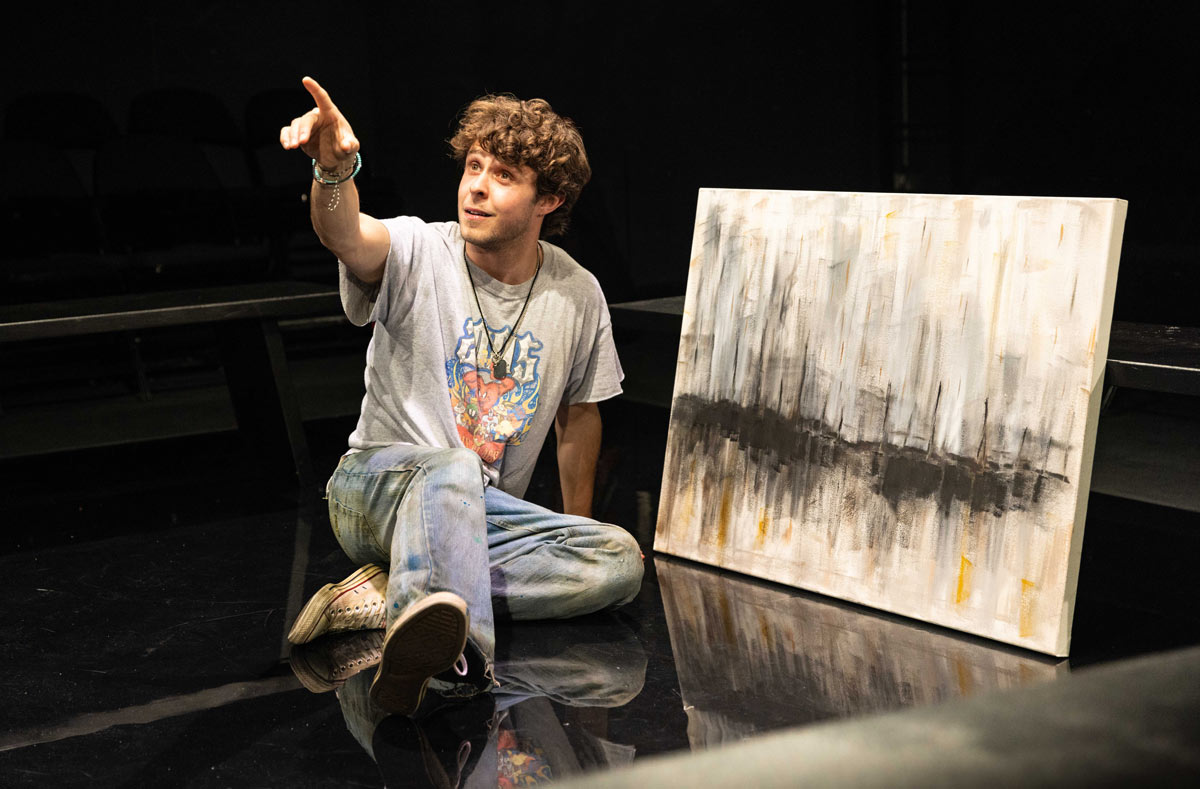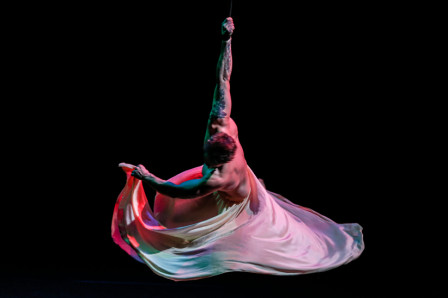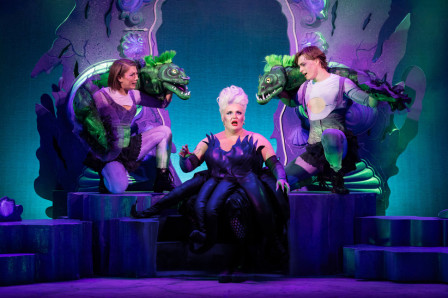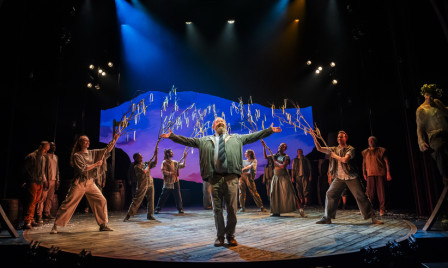Review: LEAVES OF GLASS at Park Theatre
Philip Ridley’s intense four-hander LEAVES OF GLASS receives a 3-week run at Park Theatre’s intimate space, a full 16 years since its original staging in Soho.
 Joseph Potter in Leaves of Glass at Park Theatre. Photo by Mark Senior
Joseph Potter in Leaves of Glass at Park Theatre. Photo by Mark Senior
Set amidst a dysfunctional East End family where brooding self-control and explosive tempers are deeply rooted in unspoken tragedy, the characters are by turns victim and aggressor, bully and bullied.
Steven (Ned Costello) remains on stage throughout, while younger brother Barry (Joseph Potter), pregnant girlfriend Debbie (Katie Buchholz) and mother Liz (Kacey Ainsworth) attempt to ruffle his controlled lack of emotion and later, curb his seeming descent into turmoil and madness. What starts as an exploration of suppressed anxiety and delusional behaviour, ends as an exposé of human beings’ capacity to manipulate and self-delude. The play clearly demonstrates we are able to convince ourselves that our personal recollections and belief systems trump everyone else’s (despite overwhelming evidence to the contrary when we hear for example an alternative narrative interpretation of the same events from another’s perspective).
It’s gritty, and the expletive-strewn dialogue is caustic and frequently bitter, but as tensions grow and half-truths are peeled away, the onstage interactions begin to work their way under the collective skin of the audience. In some ways the scenes almost lend themselves to television and many moments would not seem out of place on Eastenders (perhaps unsurprisingly given one cast member’s long run in that show). It’s not exactly a bundle of laughs, but there’s plenty to ponder and the small playing area (which places the actors within knee-touching distance) adds a frisson of nervous energy to proceedings in director Max Harrison’s slightly overwrought version.
Latest News

 Review: TUTU at Sadler’s Wells East
12 February 2026 at 08:52
Review: TUTU at Sadler’s Wells East
12 February 2026 at 08:52

 Is The Great Gatsby, starring Regé-Jean Page, heading to the West End?
11 February 2026 at 15:40
Is The Great Gatsby, starring Regé-Jean Page, heading to the West End?
11 February 2026 at 15:40

 Production photos of UNFORTUNATE: THE UNTOLD STORY OF THE SEA WITCH released
11 February 2026 at 15:14
Production photos of UNFORTUNATE: THE UNTOLD STORY OF THE SEA WITCH released
11 February 2026 at 15:14

 Review Round-Up: THE UNLIKELY PILGRIMAGE OF HAROLD FRY at the Theatre Royal Haymarket
11 February 2026 at 14:19
Review Round-Up: THE UNLIKELY PILGRIMAGE OF HAROLD FRY at the Theatre Royal Haymarket
11 February 2026 at 14:19